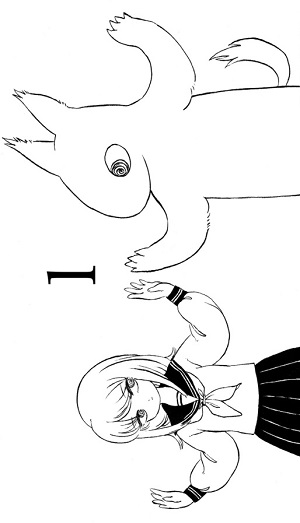Martial Peak Reviews
Olga Ziminska's Little Wing is a captivating exploration of identity, belonging, and the eternal struggle between one's past and the desire for a fresh start. Set against the backdrop of Fairhaven, Washington—a town that stands as a beacon of hope for peaceful coexistence between humans and vampires—the novel delves into the complexities of living in a world where the supernatural is woven into the fabric of everyday life.
The protagonist, Lotus Everett, is a character who immediately draws the reader in with her poignant backstory and the emotional weight she carries. Trapped in an eternal existence due to a cruel twist of fate, Lotus's journey is one of self-discovery and resilience. Her decision to flee from her twin brother's torment to Fairhaven is not just a physical escape but a symbolic shedding of her past. Ziminska skillfully portrays Lotus's internal conflict, making her a relatable and deeply human character despite her vampiric nature.
One of the novel's most compelling themes is the quest for normalcy in a world that is anything but ordinary. Lotus's attempt to blend in with humans, adopting a new identity and forming close friendships, highlights the universal desire for acceptance and belonging. Her interactions with her friends in Fairhaven are beautifully depicted, offering moments of warmth and camaraderie that contrast sharply with her tumultuous past. These relationships serve as a testament to the power of friendship in overcoming adversity.
Enter Silas Clark, a character who brings both tension and intrigue to the narrative. Silas is portrayed as a charismatic yet complex individual, whose initial pursuit of Lotus is driven by curiosity and a hint of suspicion. His involvement in building Little Wing, a community center for young vampires, adds depth to his character, showcasing his commitment to fostering a sense of community and support for others like him. Ziminska expertly crafts the dynamic between Lotus and Silas, weaving a narrative that is both romantic and suspenseful.
The chemistry between Lotus and Silas is palpable, and their evolving relationship is a central pillar of the story. As Silas delves deeper into Lotus's past, the tension mounts, raising questions about trust, acceptance, and the fear of being truly seen. The author deftly navigates these themes, creating a narrative that is as much about personal growth as it is about romance. The question of whether Silas will accept Lotus for who she truly is or turn away like others before him adds a layer of suspense that keeps readers engaged.
In terms of character development, Ziminska excels in creating multidimensional characters who are both flawed and endearing. Lotus's journey from a tormented soul to someone who begins to embrace her identity is portrayed with sensitivity and nuance. Similarly, Silas's transformation from a carefree individual to someone who grapples with deeper emotions is handled with care, making their arcs both believable and satisfying.
The setting of Fairhaven, with its unique position as a town embracing a human-vampire treaty, adds an intriguing layer to the story. It serves as a microcosm of a world striving for harmony amidst inherent differences. Ziminska's vivid descriptions bring the town to life, making it a character in its own right. The community center, Little Wing, symbolizes hope and the possibility of a future where vampires can thrive without fear or prejudice.
Comparatively, Little Wing shares thematic similarities with other works in the supernatural genre, such as Charlaine Harris's Sookie Stackhouse series or Deborah Harkness's All Souls Trilogy. However, Ziminska's novel stands out for its introspective approach and focus on personal identity. While Harris and Harkness often emphasize external conflicts and broader supernatural politics, Ziminska hones in on the internal struggles of her characters, offering a more intimate and character-driven narrative.
Overall, Little Wing is a beautifully crafted novel that resonates with readers on multiple levels. Its exploration of identity, acceptance, and the courage to confront one's past is both poignant and inspiring. Ziminska's ability to blend romance, suspense, and supernatural elements into a cohesive and engaging story is a testament to her skill as a storyteller. For those seeking a novel that offers both heart and depth, Little Wing is a must-read.
In conclusion, Olga Ziminska has delivered a novel that not only entertains but also provokes thought and reflection. Little Wing is a testament to the power of storytelling to illuminate the human condition, even when told through the lens of the supernatural. It is a book that will linger in the minds of its readers long after the final page is turned.
























Reviews 0
Post a Reviews: